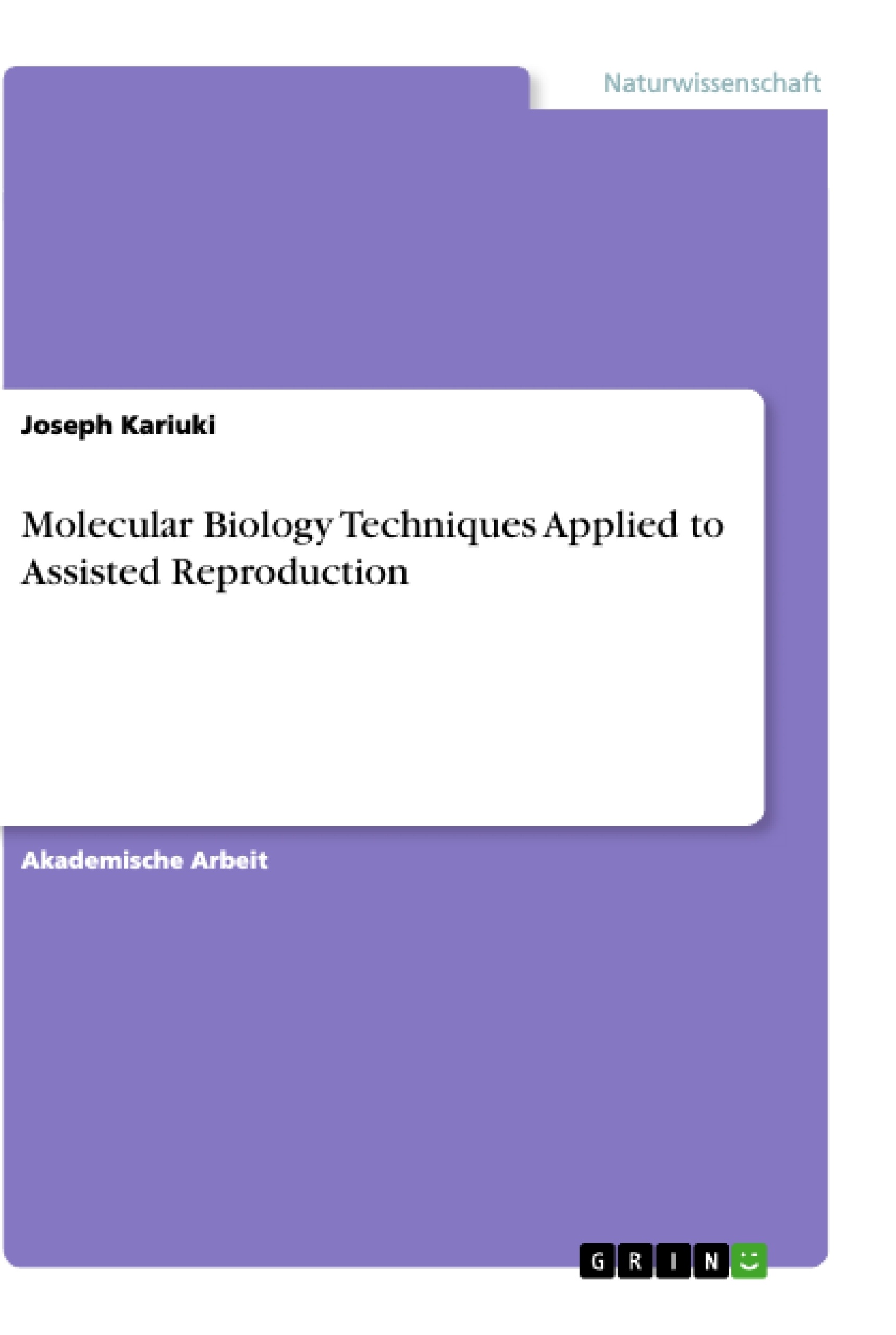The aim of this paper will be an attempt to review available molecular biology techniques that can be used to offer effective treatment solution for couples who are unable to get pregnant. Due to a wide range of options available, it is important to find evidence-based techniques that are proven to offer positive results.
Many couples and people around the world experience fertility issues, which affects their ability to conceive children. A majority of the affected people do not know where to get appropriate treatment, which further worsens their mental burden. There are available treatment solutions available to them, but many are not backed by research or science and can prove to be dangerous. This therefore necessitates the need to find appropriate molecular biology techniques applied to assisted reproduction, which can be helpful to affected couples and individuals.
Contents
1. Introduction
1.1 Background to the study
1.2 Statement of the problem
2. Literature Review
2.1 Male Infertility
2.1.1 Whole chromosomal aberrations
2.1.2 Partial chromosomal aberrations
2.1.3 Single gene mutations
2.2 Female genetic infertility
2.2.1 Chromosomal aberrations
2.2.2 Fragile X syndrome
2.3 Molecular Biology Techniques in Assisted Reproduction
2.3.1 In-vitro fertilization and embryo transfer (IVF)
2.3.2 Intracytoplasmic sperm injection (ICSI)
3. Discussion
3.1 Molecular techniques for detecting genetic illnesses that are transmissible to offspring
3.2 Single gene disorders
4. Advancement in Molecular Biology in Assisted Reproduction
5. Ethical Considerations
6. Conclusion
References
- Quote paper
- Joseph Kariuki (Author), 2020, Molecular Biology Techniques Applied to Assisted Reproduction, Munich, GRIN Verlag, https://www.hausarbeiten.de/document/1189883



